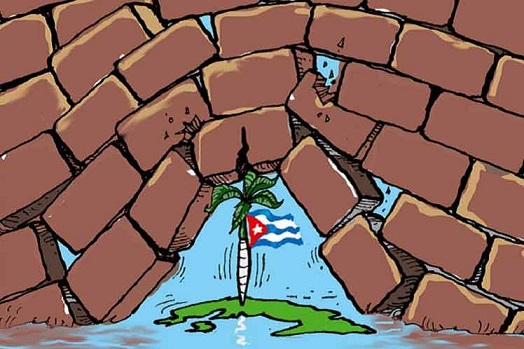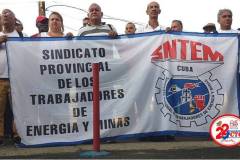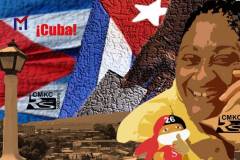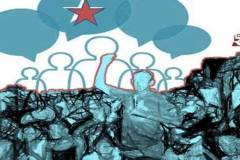

Blockade– President Joe Biden is taking his first steps in office, while Cuba is still under the harmful effects of a long-standing blockade.
Cuban president is grateful for solidarity against US blockade
It is stated in a report that Cuba will submit in May to the United Nations General Assembly about the impact of the economic, financial and commercial blockade in force over the last six decades.
The history of Cuba is one of victories
It will be another exercise at the General Assembly against a practice that has been rejected repeatedly by the international community.
It will be the twenty-ninth occasion that the draft resolution, entitled ‘Necessity to end the economic, commercial and financial blockade imposed by the United States of America against Cuba’, will be submitted to that UN body.
Cuban President Miguel Diaz-Canel
The report covers the period between April 2019 and March 2020, which has been characterized by a rollback in bilateral relations and a progressive tightening of Washington’s blockade.
It is a period during which several regulations and provisions adopted by the Donald Trump administration reached unprecedented levels of hostility, as if the northern power were in a war against the neighboring small Caribbean nation.
The White House established the possibility of filing lawsuits in US courts against under the umbrella of Title III of the Helms-Burton Act those who ‘traffic’ in properties nationalized by Cuba according to its laws.
‘The law aims to tighten international sanctions against Cuba at a time when the Caribbean island is opening up much more to foreign investments,’ diplomat Yusnier Romero, an expert in the US General Department at Cuba’s Foreign Ministry, told Prensa Latina.
He explained that the legislation is aimed at suffocating Cuba economically by enforcing four titles that promote financial persecution and extraterritorial lawsuits against third countries that are doing business in the Caribbean island.
With that purpose, the United States tightened the persecution of Cuba’s financial and commercial transactions.
It also banned flights to Cuban airports (except for Havana), as part of a reinforced practice of persecution and intimidation to companies that send fuel to Cuba.
According to the report, from April 2019 to March 2020, the blockade caused Cuba to lose some 5.57 billion dollars, accounting for an increase of 1.226 billion dollars compared to the previous period.
For the first time, the total damage due to the US blockade exceeds five billion dollars.

According to current prices, the accumulated damage in nearly six decades of blockade (without including last year) amounts to 144.413 billion dollars.
Food production, another target of the US blockade against Cuba
More than 428 million dollars in losses caused, only between April 2019 and March 2020, the economic, financial and commercial blockade of the United States against Cuba in the production of food to satisfy the demands of the population.
A detailed report on this subject is included in the Cuban report pursuant to UN General Assembly Resolution 74/7, entitled «Necessity of ending the economic, commercial and financial blockade imposed by the United States of America against Cuba».
It specifies that this period is marked by a strong setback in bilateral Cuba-United States relations and a progressive tightening of their general harassment of the country.
Food production, another target of the US blockade against Cuba
The report also explains that many of these affectations would have been avoided if Cuban companies were able to access the US market, which would be very beneficial because of its prices and proximity, especially since such US industries are capable of supplying Cuban entities with raw materials, equipment and materials needed to modernize their production lines.
A clear example was how the Cuban company Bravo was affected by the impossibility of acquiring 2,700 tons of meat in the US market, for a price of 2,213 dollars per ton.
This company was forced to use other suppliers with higher prices and spent at least 1,296,000 dollars more.
In addition, the food importer, ALIMPORT, suffered significant damages due to the high prices of frozen chicken in geographically distant markets, compared to the United States, which was impossible for it to access in the period analyzed.
The prices of this product in the markets to which the Cuban entity had access, precisely, range from 350 to 600 dollars above the price of the metric ton in the United States.
Between November and December 2019, 12,399 hectares of rice could not be planted due to the unavailability of fuel.
Because of this, 30,130 tons of rice for consumption and more than 195,000 tons of food were not produced, and more than two million liters of milk and 481 tons of meat were not collected, which had a negative influence on the food of the Cuban population.

During this period, which covers less than a year, 90 coercive economic actions and measures were imposed by the US government against Cuba, with the intention of meddling in internal affairs of the Caribbean island.

































































